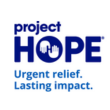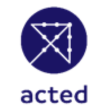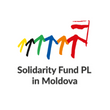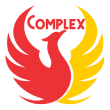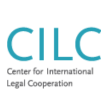Organizații vizate:
Achiziții de bunuri și contractări de servicii
- Detalii
- Categorie: Achiziție bunuri, Contractare Servicii
Request for proposals conducting design thinking workshop and hackathon in Chisinau, Moldova
Informațiile prezentate în articolul de mai jos pot să nu mai fie actuale sau să nu mai reflecte activitățile și programele curente. Anunțul este păstrat în arhivă pentru a asigura transparența și accesul public la informațiile despre inițiativele și proiectele implementate anterior.
SUMMARY
Great Lakes Community Action Partnership (GLCAP) is seeking qualified applicants to conduct a 1.5-day design thinking workshop and a 2.5-day hackathon for its project, Youth Empowerment Program (YEP) in Chisinau, Moldova. The design thinking workshop is expected to take place approximately May 6-7, 2022, and the hackathon is planned for June 30-July 2, 2022. Dates may have some flexibility if necessary, and remote options may be considered for the trainers for the design thinking workshop. The design of the hackathon should include a one-day course for mentors immediately preceding the hackathon to ensure that they understand their role and expectations of mentors, as well as have the appropriate tools to be effective in this role.
GLCAP ORGANIZATION OVERVIEW
GLCAP, based in Ohio, USA, implements a variety of domestic and international programs. Many of our international programs are focused on civil society and empowering individuals, including youth, to have a voice in their communities and governments and to help build sustainable communities that respect the rights of all citizens. Other programming is focused on leadership development (especially for women and youth) and sustainable community development strategies. GLCAP’s mission is to create partnerships and opportunities that help individuals, families and communities thrive.
Since 2019, GLCAP and its implementing partner, Institute for Rural Initiatives (iRi), based in Chisinau, Moldova have been implementing a program in Moldova for youth with the following goals and objectives:
Long-Term Goals
- Harness the energy and desire of rural youth for social, political and economic change and channel it into constructive civil society engagement to build competitive communities with opportunities for youth.
- Realize the basic principles of Moldova’s Youth Strategy to encourage participation of young people in the development, promotion and execution of policies and programs oriented towards the development of all aspects of young peoples’ lives.
Specific Objectives
- To train and encourage youth to engage more fully with relevant stakeholders and local public authorities.
- To facilitate youth activism in civil society processes that effect positive change in public policies, services, and economic opportunities for young people in their communities.
- To strengthen rural local governments’ capacities to create participatory mechanisms that engage youth and align local policies and services with national policies.
PROJECT BACKGROUND
Moldovan youth are grappling with significant issues and low levels of trust in all government institutions. Approximately 40% of youth are not in employment, education, or training (OECD Youth Well-Being Policy Review of Moldova report) and lack the belief that any social, political, or economic change at the national or local level is possible. This results in significant out-migration that creates a loss of talent for the country, which will not be sustainable over time. Moreover, when citizens are not participating in civil society and political life, there is no demand for transparency or accountability from the government and no pressing need to provide better services.
Another challenge identified by the OECD report is that the institutional framework for youth policies is fragmented, with little coordination. In 2014, the Government adopted the National Strategy of Youth Sector Development 2020 aimed at developing policies for civic engagement, employment and a framework for establishing regulatory mechanisms for youth sector activities, but implementation is weak. The report states that “the institutional frameworks of regional and local governments for implementing youth policy are especially underdeveloped.”
With these issues in mind, we undertook the Youth Empowerment Program (YEP), designed to increase the knowledge and leadership skills of rural youth (aged 18-30), and improve the coordination between local government administrations and their youth, thereby building trust and improving youth policies at the local level, and improving community social capital and civic life.
This project is funded by the U.S. Department of State’s Bureau of Democracy, Human Rights, and Labor (DRL), which has funded a second phase of the project with a range of activities based on lessons learned in Phase 1. The range of activities in phase 1 included identifying 15 NGOs that could serve as local implementing partners, with each NGO identifying two communities in which they would conduct their work. The role of the NGOs included formation of youth initiative groups, providing leadership training to these groups, and serving as a liaison between the youth groups and the local public authorities (LPAs). The youth initiative groups and their NGO mentors then worked with the LPAs to design and develop a local strategy to better meet the needs of young people in the community, and worked together to implement at least one project identified in the strategy, for which they were provided a small seed grant to leverage additional funds.
Phase 2 includes a continuation of these activities, with the addition of the design thinking workshop and hackathon. The goal of the design thinking workshop is to expose rural youth to different ways of thinking about problems, teaching them creative problem-solving skills and helping to foster innovation. Other benefits of design thinking, especially for young people, are that it teaches teamwork and collaboration skills, empathy, resilience, and how to view setbacks and failures as valuable learning moments. According to a Stanford University study published in 2019, students exposed to design thinking concepts applied these strategies to entirely new problems without prompting. In other words, it changed the way that they approached problems, and these are 21st century skills that all young people need to have.
The hackathon will focus on solving social problems experienced by youth in their communities, with civic engagement being at the center of potential solutions. We believe that this format has a number of benefits for both communities and for the youth. For the youth, a hackathon can be a great proving ground for new ideas and stimulate creativity and problem-solving, allowing them to put their newly-learned Design Thinking skills to work in a practical, real-world application. Youth will learn important skills regarding communication and collaboration and be able to forge valuable relationships in a fun setting while making a positive difference in their communities.
The benefits for communities include the potential to identify innovative solutions to civic challenges. In addition, it will allow them to build the social capital that is so important to maintaining a continued relationship with their youth population. Finally, it will give them the opportunity to offer technology education to their youth that they might not otherwise receive, which may in turn help the youth be able to remain in place in the community while working remotely in a technology field.
We have set aside funds in the project to assist with beginning the implementation of the best ideas that come from the hackathon, as determined by a panel of judges.
OVERVIEW OF EXPECTATIONS AND PROJECT IMPLEMENTATION
As previously noted, there are three primary deliverables for proposed project:
- Delivery of a 1.5-day design thinking workshop for up to 100 participants to familiarize them with the concept of design thinking as a non-linear, iterative process that teams use to understand users, challenge assumptions, redefine problems and create innovative solutions to prototype and test;
- Delivery of a pre-hackathon 1-day mentor class for up to 30 people designed to ensure that mentors understand their role, expectations of them, and have the tools that they need to be effective mentors; and
- Leading and managing the design and implementation of a 2.5-day hackathon for up to 125 participants, to include working collaboratively with iRi prior to the event on the marketing of the event and the identification and recruitment of mentors from the technology, creative industry and government sectors.
An additional expectation is GLCAP and iRi staff will be significantly involved in the planning and implementation of the event, so close coordination among all of the involved partners is critical.
PROJECT IMPLEMENTATION
The implementation of the project will take place between April and July 2022, with the final deliverable (hackathon event) concluding by July 15, 2022.
iRi staff will provide logistical and technical support as needed throughout the project. The project manager will provide input and guidance during the preparation phase, and iRi staff will be available to work collaboratively on development and distribution of marketing materials, identification and recruitment of mentors, and planning and implementation of the events. iRi staff will be responsible for event logistics, coordination of travel and lodging of participants and trainers, and identifying and hiring interpreters.
APPLICATION GUIDELINES
Interested applicants must provide all materials outlined below to the project manager with the contact information provided at the end of this document by 5:00 pm EDT by April 8, 2022. A final decision will be made by April 15, 2022.
All proposals should, at a minimum, include the following items:
- Brief background (overview) of your company or organization;
- Listing of previous experience with similar projects, e.g. past design thinking workshops and hackathons conducted, as well as any experience with community-building and/or social entrepreneurship hackathons;
- Description of the process and typical schedule/agenda for the design thinking workshop, mentor pre-course, and hackathon event;
- Scope of work that describes your vision for the role of your company/organization and the role of GLCAP/iRi as collaborative organizing partners; and
- Cost breakdown and total budget for these events.
The selected consultant must have demonstrated expertise in design thinking and the organization and conduct of hackathons, as well as demonstrated ability to work with youth. Local language skills looked upon favorably but not required. Additional information about desired qualifications is listed below:
- Minimum 5 years of experience in designing, overseeing, and implementing similar projects;
- Excellent inter-cultural communication skills/cultural sensitivity and the ability to forge strong cross-cultural relationships and build trust demonstrated through previous intercultural experience;
- Strong facilitation, presentation, and communication skills;
- Strong ability to communicate effectively in English, both verbally and in writing; and
- Team player with the ability to closely collaborate with GLCAP and iRi staff, local partners, and stakeholders.
CONTACT INFORMATION
Please refer any questions regarding this RFP and submit all application materials to the project manager listed below before 5:00 pm EDT April 8, 2022.
Only candidates selected for further consideration will be contacted.
| POINT OF CONTACT | ||||||
| Debra Martin +1 419-554-9540 dcmartin@GLCAP.org |
||||||
- Expert/ă în dezvoltarea mecanismului de monitorizare a educației online a copiilor refugiați
- OEAPM-REOI-National Consultant for consultancy services to improve the communication skills and media relations of the State Hydrometeorological Service
- Licitație deschisă pentru contractarea serviciilor de consultanță
- Extinderea termenului de selectare a serviciilor de consultanță pentru instruirea autorităților publice locale în domeniul eficienței energetice și elaborarea Planului Local Integrat privind Energia și Clima (PLIEC) al comunei Obreja Veche
- Keystone Moldova angajează coordonator de proiect
Achiziții și Contractări pe Telegram
Nu pierdeți niciun anunț de achiziție bunuri/contractare servici postat pe site! Urmăriți Canalul dedicat pe Telegram:
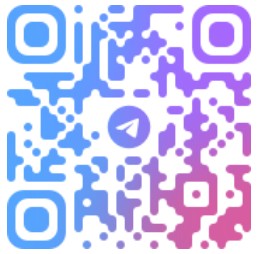
Top organizatii
2025 CIVIC DIGITAL SOLUTIONS
Email: support@portal.civic.md



